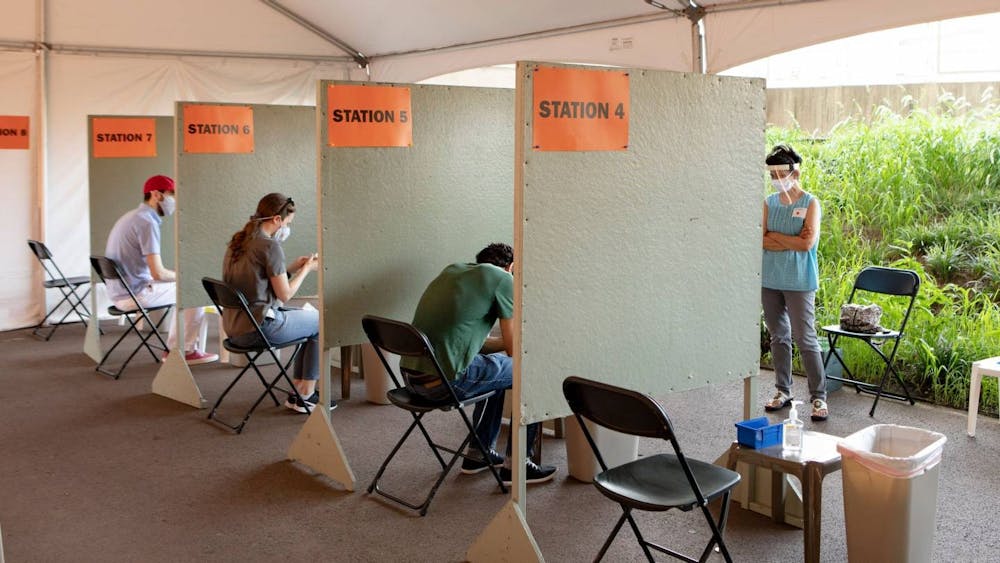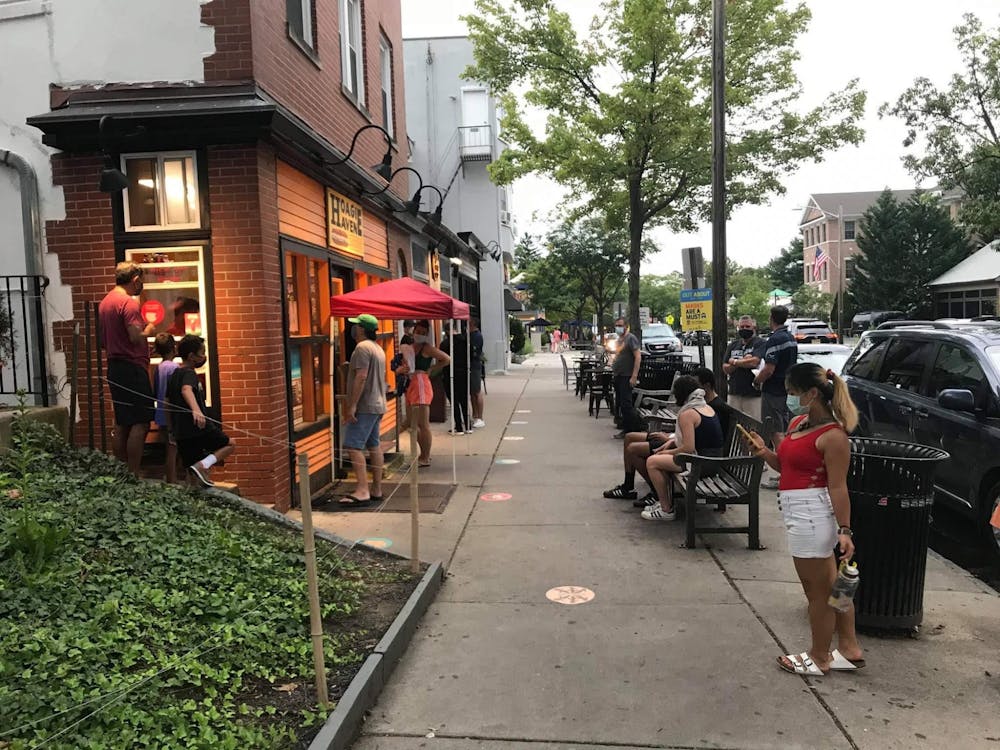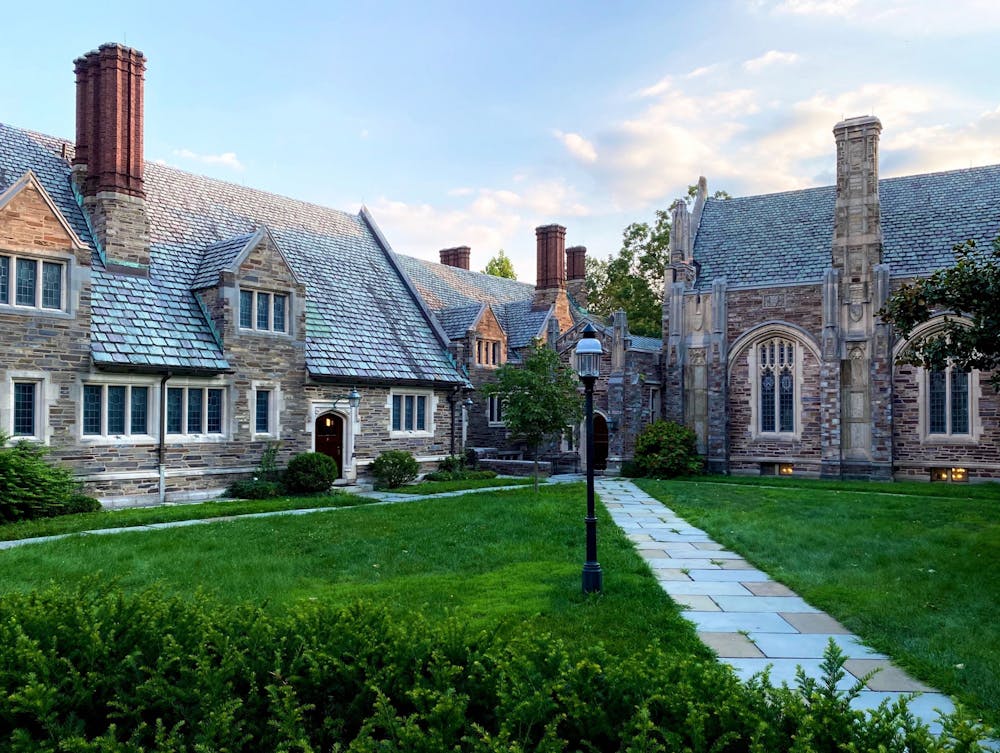Fewer than 300 undergraduates have moved into campus dorms, beginning a semester of virtual coursework, dining hall dinners, and occasional walks to Powers Field for COVID-19 testing.
While a majority of undergraduates were not permitted to return to campus, the University approved some exceptions. Around 200 students were granted emergency residence due to housing precarity, according to an email sent to all undergraduates on Aug. 21 by Vice President for Campus Life Rochelle Calhoun.
Another 16 are Army Reserve Officer Training Corps (ROTC) participants. And out of the roughly 60 seniors who were approved for thesis research, 37 have chosen to live on campus.
Calhoun’s email explained that all on-campus students were required to complete online training, a COVID-19 risk assessment, and sign a social contract.
During their first two weeks on campus, undergraduates living on campus and graduate students working on campus for at least eight hours per week are required to be tested twice a week.
The University administered 4,477 tests in its first week of asymptomatic testing, with four University employees and zero students testing positive.
Hilcia Acevedo ’23, a student living on campus, explained that the testing process was simple.
“As daunting as it felt, the process was doable,” she said. “I show up to the football stadium, stand in line, scan my testing kit, and spit into a tube.”


Photo credit: Denise Applewhite / Princeton University Office of Communications
Though the campus feels different due to the COVID-19 pandemic and decreased density, the students who spoke with The Daily Princetonian expressed that they were glad to return.
“It was weird and depressing on the first day, realizing everything that it’s not,” said Jacob Rob ’21. “But honestly, I’m happy to be back.”
Rob plans to serve active duty in the U.S. army after graduation. He explained that even if an ROTC participant completes a virtual walkthrough, the physical nature and mental stress of in-person ROTC are irreplaceable.

“Online, you can’t maximize the ROTC labs,” he said.
All ROTC Army students were granted permission to live on campus, while the Air Force and Naval ROTC programs are being conducted entirely online.
Other students wanted to live on campus to focus on research.
“I chose not to live in my family’s house because it’s easier to get to the lab and have quiet space to work,” said Peter Colvin ’21, a student in the chemical and biological engineering (CBE) department.
For his senior thesis, Colvin plans to genetically engineer yeast, which is not possible at home.
Another CBE concentrator, Angela Yang ’21, also returned to the University to work in a laboratory. She works morning shifts, unlike the rest of her peers, who work in the evenings.
“Since I’m the only senior in my lab, I don’t have to worry about fighting for space with other seniors,” Yang said.
After living in her home state of Ohio, Yang said she felt bored and wanted to live independently. The University’s architecture and quiet environment comfort her.
“On campus, I can go on Nassau Street or sit outside — it’s very pretty — so I like the environment better than being at home,” Yang said.
Despite the peaceful scenery, some students struggle to find good study areas on campus.
“We essentially have no private workspace to be in besides our room,” Acevedo said.
Before students moved in for the fall semester, the University locked the classrooms in Frist Campus Center, and Wilcox Hall — the only open dining hall — operates under strict hours.
Students in quarantine face even fewer options. Their delivered meals might consist of few options, such as a muffin or an apple.
“Depending on how hungry they are or how much they’re used to eating, they have more of a struggle than we do,” Colvin said.
Students under quarantine are not allowed to leave their rooms except to use the restroom or take a short, 30-minute walk, according to an email sent to on-campus students by Associate Director of Student Housing Angie Rooney.
A “fact sheet” from University Health Services lists a number of activities for quarantining students to keep themselves busy — from reading and video chatting to “bodyweight only” exercise.
Despite strict quarantine rules and the lack of students on campus, David Liu ’22 said the campus feels like a usual college environment. He sees skateboard enthusiasts and townspeople roaming the campus.

Photo Credit: David Liu ‘22
“Princeton should be a ghost town or feel like it, but there is a surprising amount of presence,” Liu said.








